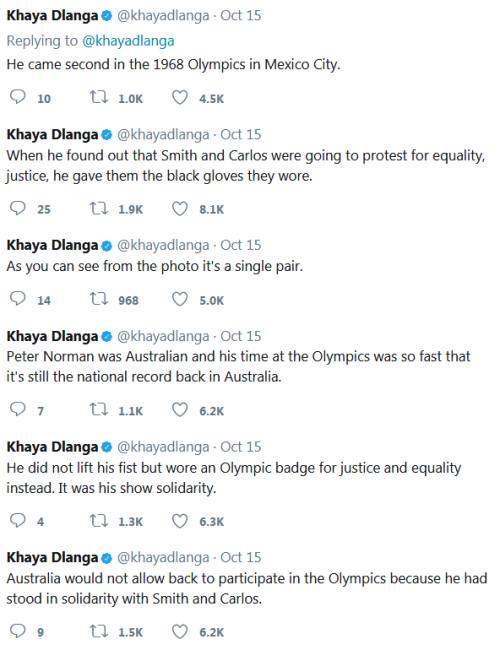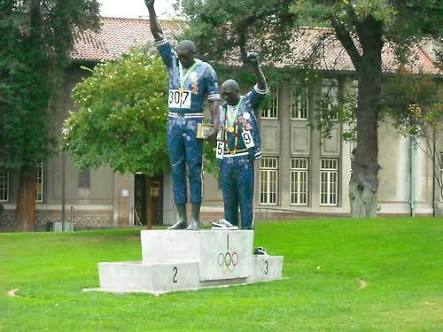I Had A Dream That A Cruise Ship Went Down Off The Coast Of A National Park And For Some Reason No One
I had a dream that a cruise ship went down off the coast of a national park and for some reason no one else knew—its passengers were ALL celebrities and I watched them all scramble ashore looking for help.
The park was enormous, and possibly also Area X from the Southern Reach, so it became my job to lead all ~50 movie stars back to safety.
This was terrible. They did not want to cooperate and did not want to take orders from me, so I had to go full hardass and forcibly assign them buddy system partners. Some wanted to race ahead to show how fit they were and did not appreciate being told to stay with the group so that they did not get lost and would be able to use their extra energy to assist anyone who was injured or capacitated.
A few of them tried the “do you know who I AM?” routine on me and I was like “well I’m mostly faceblind so I’m not sure but I DO know that you’re a whiny little bastard who needs to get his shit together”.
The kid from Stranger Things kept compulsively running off the trail to knock shit over, including trial markers, so I had to change his partner from Danny DeVito.
At one point the forest disappeared and we were suddenly at an Arab-American festival in Seattle and my old Arabic teacher came over and started angrily interrogating me about why I didn’t study harder, I cried, and then I stole a fist full of meat from a cooked eel outside a restaurant, at it, and became Brendan Fraser from George of the Jungle, but gay and in love with my girlfriend’s ex boyfriend.
More Posts from Psyxe and Others
Me, a disgraced academic turned farmer, surveying my crops: Finally... I am out standing in my field
some of you are like “if a homemade cloth mask isn’t 100% EFFECTIVE AT PREVENTING DISEASE it’s worth LESS THAN NOTHING and you might as well go around licking doorknobs and DIE than cover your face AT ALL for ANY REASON”
look okay coughing or sneezing into your elbow isn’t 100% effective at stopping fluid particles from being dispersed into the air or on surfaces but even a measley 5-10% reduction in spewed particles is better than 0%
The rules about responding to call outs aren’t working
Privileged people rarely take the voices of marginalized people seriously. Social justices spaces attempt to fix this with rules about how to respond to when marginalized people tell you that you’ve done something wrong. Like most formal descriptions of social skills, the rules don’t quite match reality. This is causing some problems that I think we could fix with a more honest conversation about how to respond to criticism.
The formal social justice rules say something like this:
You should listen to marginalized people.
When a marginalized person calls you out, don’t argue.
Believe them, apologize, and don’t do it again.
When you see others doing what you were called out for doing, call them out.
Those rules are a good approximation of some things, but they don’t actually work. It is impossible to follow them literally, in part because:
Marginalized people are not a monolith.
Marginalized people have the same range of opinions as privileged people.
When two marginalized people tell you logically incompatible things, it is impossible to act on both sets of instructions.
For instance, some women believe that abortion is a human right foundational human right for women. Some women believe that abortion is murder and an attack on women and girls.
“Listen to women” doesn’t tell you who to believe, what policy to support, or how to talk about abortion.
For instance, some women believe that religious rules about clothing liberate women from sexual objectification, other women believe that religious rules about clothing sexually objectify women.
“Listen to women” doesn’t tell you what to believe about modesty rules.
Narrowing it to “listen to women of minority faiths” doesn’t help, because women disagree about this within every faith.
When “listen to marginalized people” means “adopt a particular position”, marginalized people are treated as rhetorical props rather than real people.
Objectifying marginalized people does not create justice.
Since the rule is literally impossible to follow, no one is actually succeeding at following it. What usually ends up happening when people try is that:
One opinion gets lifted up as “the position of marginalized people”
Agreeing with that opinion is called “listen to marginalized people”
Disagreeing with that opinion is called “talking over marginalized people”
Marginalized people who disagree with that opinion are called out by privileged people for “talking over marginalized people”.
This results in a lot of fights over who is the true voice of the marginalized people.
We need an approach that is more conducive to real listening and learning.
This version of the rule also leaves us open to sabotage:
There are a lot of people who don’t want us to be able to talk to each other and build effective coalitions.
Some of them are using the language of call-outs to undermine everyone who emerges as an effective progressive leader.
They say that they are marginalized people, and make up lies about leaders.
Or they say things that are technically true, but taken out of context in deliberately misleading ways.
The rules about shutting up and listening to marginalized people make it very difficult to contradict these lies and distortions.
(Sometimes they really are members of the marginalized groups they claim to speak for. Sometimes they’re outright lying about who they are).
(For instance, Russian intelligence agents have used social media to pretend to be marginalized Americans and spread lies about Hillary Clinton.)
The formal rule is also easily exploited by abusive people, along these lines:
An abusive person convinces their victim that they are the voice of marginalized people.
The abuser uses the rules about “when people tell you that you’re being oppressive, don’t argue” to control the victim.
Whenever the victim tries to stand up for themself, the abuser tells the victim that they’re being oppressive.
That can be a powerfully effective way to make victims in our communities feel that they have no right to resist abuse.
This can also prevent victims from getting support in basic ways.
Abusers can send victims into depression spirals by convincing them that everything that brings them pleasure is oppressive and immoral.
The abuser may also isolate the victim by telling them that it would be oppressive for them to spend time with their friends and family, try to access victim services, or call the police.
The abuser may also separate the victim from their community and natural allies by spreading baseless rumors about their supposed oppressive behavior. (Or threatening to do so).
When there are rules against questioning call outs, there are also implicit rules against taking the side of a victim when the abuser uses the language of calling out.
Rules that say some people should unconditionally defer to others are always dangerous.
The rule also lacks intersectionality:
No one experiences every form of oppression or every form of privilege.
Call-outs often involve people who are marginalized in different ways.
Often, both sides in the conflict have a point.
For instance, black men have male privilege and white women have white privilege.
If a white woman calls a black man out for sexism and he responds by calling her out for racism (or vice versa), “listened to marginalized people” isn’t a very helpful rule because they’re both marginalized.
These conversations tend to degenerate into an argument about which form of marginalization is most significant.
This prevents people involved from actually listening to each other.
In conflicts like this, it’s often the case that both sides have a legitimate point. (In ways that are often not immediately obvious.)
We need to be able to work through these conflicts without expecting simplistic rules to resolve them in advance.
This rule also tends to prevent groups centered around one form of marginalized from coming to engage with other forms of marginalization:
For instance, in some spaces, racism and sexism are known to be issues, but ableism is not.
(This can occur in any combination. Eg: There are also spaces that get ableism and sexism but not racism, and spaces that get economic justice and racism but not antisemitism, or any number of other things.)
When disabled people raise the issue of ableism in any context (social justice or otherwise), they’re likely to be shouted down and told that it’s not important.
In social justice spaces, this shouting down is often done in the name of “listening to marginalized people”.
For instance, disabled people may be told ‘you need to listen to marginalized people and de-center your issues’, carrying the implication that ableism is less important than other forms of oppression.
(This happens to *every* marginalized group in some context or other.)
If we want real intersectional solidarity, we need to have space for ongoing conflicts that are not simple to resolve.
Tl;dr “Shut up and listen to marginalized people” isn’t quite the right rule, because it objectifies marginalized people, leaves us open to sabotage, enables abuse, and prevents us from working through conflicts in a substantive way. We need to do better by each other, and start listening for real.
You do not have to be valid.
You do not have to scroll through your notes
For a hundred hours repenting
You only have to let the problematic animal of your body love what it loves.
So I was looking up a certain kind of cellular automata on Wikipedia out of curiosity, and then I ended up seeing a link for something called “billiard ball computers”.

So basically it’s a theoretical construction to show nature has results that can be reversible or something. You do have to let the billiards be frictionless, though. So it’s not like you could implement this in real lif-

Um…

This guy???

Wait,, just look at the pictures they have though. The captions refer to crab groups as “swarm balls”, which is a very endearing term IMO.


Unfortunately, these gates take up a lot of space, so to do big computations you’d need lots of crabs and several hundred feet of cardboard.
Continuation from this post: some other “these events happened at about the same time or close together in history” things:
- The French Revolution happened shortly after the American Revolution, and the Haitian Revolution happened shortly after the French Revolution, and the big wave of revolution that freed Latin America from Spanish control happened shortly after the Haitian Revolution. I think this wasn’t a coincidence: these revolutions were connected!
- The first civilizations arose in Egypt and Mesopotamia at the end of the great drying of the Sahara and Arabia. Again, I think this wasn’t a coincidence! The drying climate meant people had to rely more on big labor-intensive irrigation works, which meant that cooperation and coordination on a large scale became more important. The great drying probably drove refugees into the Nile valley and the lands around the Tigris and Euphrates, increasing the population density of those regions. This would have meant even more reliance on labor-intensive large-scale irrigation, and also those extra people would have helped staff the work-gangs, work-shops, and armies of the new kings. The influx of refugees probably also meant a mixing of cultures, which probably stimulated technological, cultural, and institutional innovation.
- The peopling of the Americas and the first experiments with grain farming in the Middle East might have been happening at about the same time.
- The Norman conquest of England was within living memory at the time of the First Crusade.
- The Classical Maya period was 250-900 CE, roughly coinciding with the late Roman Empire and the Dark Ages in Europe. The collapse of the Classical Maya centers was during the 900s, about a century or two after Charlemagne’s time (IIRC the 900s CE is around the end of the Danelaw period in England).
- The moai (the big heads) of Easter Island aren’t ancient; they were built during the late Middle Ages and the early modern period.
- New Zealand was peopled during the Middle Ages, IIRC some centuries after the peopling of Iceland. New Zealand was one of the last lands on Earth to be peopled.
- Lady Murasaki lived in the late 900s and early 1000s CE; a little before the Norman conquest of England. To me Heian-period and pre-Heian Japan feels like the Bronze Age, but it’s from a completely different period of history; it existed in the same world as Vikings and Charlemagne and the Tang Dynasty; I think that’s interesting. Speaking of Japanese history, the Japanese warring states period and the height of classic samurai feudalism was the 1400s and 1500s.
- Australia was peopled at least 30,000 years before the Americas, and Homo sapiens expansion into northern Eurasia seems to have taken much longer than Homo sapiens peopling of Australia. There’s a lesson in this: cold seems to have been a more daunting barrier than ocean. That makes sense in a way: the Homo sapiens out-of-Africa migrants were likely tropical/subtropical coast-dwellers, and they could have just followed the tropical/subtropical southern coast of Asia all the way to Java (which you could have walked to from Asia back then because sea levels were lower), never leaving warm coastal regions. After that they would have needed just one big innovation to reach Australia: sea-worthy boats. Adapting to the cold northern regions of ice age Eurasia would have required more radical changes to their tool-kit and lifestyle. I think something similar happened in the Americas: there are surprisingly old signs of human presence in South America, and I suspect what happened is the first Americans were fisher-whaler-beachcomber people who lived on a stretch of ice-free coast between the Pacific and the ice age North American glaciers, and as they expanded they mostly just followed the coast south, and they kept doing that until some of them reached Tierra del Fuego within maybe a few centuries. If an alien visited Earth around 13,500 BCE I think they might have found a few tens of thousands of people living along the west coast of the Americas from Alaska to Tierra del Fuego and the rest of the Americas still almost uninhabited (maybe there’d be a few thousand people living in the inland hills of California and the inland jungles of Central America, but that’d be about it). Only the most adventurous early Americans moved inland, where they’d have to survive without the resources of the sea and the beach, and became the Clovis People and other inland early American hunter-gatherer cultures. I wouldn’t be surprised if there were humans living along the shores of the Straight of Magellan before there were humans living in the Sierra Nevada mountains of California.
A somewhat different but related thing: communicating the sheer length of ancient Egyptian history:
- Sargon the Great gets called the first empire-builder, but I think that title really should belong to Narmer, or whoever the first Pharaoh of a unified Egypt was. We often don’t think of Narmer as an empire-builder for the same reason we often don’t think of Qin Shi Huangdi’s great empire as an empire: the empire was so successful and enduring that it eventually started to look like a natural fact of human cultural geography. You know your empire has really succeeded when most people don’t think of it as an empire! Sargon the Great lived about 800 years after Narmer, so the difference in time between them is similar to the difference in time between Julius Caesar and Charlemagne.
- The Great Pyramids were built in the 2500s and early 2400s BCE, about 500 years after Narmer’s reign. This was early in Egyptian history! I think it’s interesting that the Egyptians did this huge construction project early in their history and never did anything like that again. I really wonder what happened there. Did building the Great Pyramids ruin the economy? Did the mobilization of the huge workforce needed to build the Great Pyramids stir up the disease pool and cause plagues (did something similar happen when Amarna was built and populated and did that contribute to the failure of the Atenist reformation?)? Anyway, like I said, the Great Pyramids were built relatively early in Egyptian history … though the time difference between Narmer and the builders of the great pyramid was comparable to the difference in time between us and Columbus and Henry VIII!
- There were three most ancient centers of civilization that emerged at about the same time: Mesopotamia, Egypt, and the Indus Valley Civilization. The Indus Valley Civilization collapsed around 2000 BCE and we don’t know much about it; we can’t read their writing. I think it’d be fascinating if we could learn more about the Indus Valley Civilization! Were they politically fragmented, like Mesopotamia, or were they a single state, like Egypt? There’s some evidence that might suggest the latter, but it’s impossible to know! So many unanswered questions!
- The Thera eruption that might have contributed to the decline of Minoan civilization happened around 1600 BCE. This was around the same time as the Hyksos rule in northern Egypt; if I’m reading my Wikipedia skimming right there’s a record of the Thera eruption recorded on a stelae set up by the Pharaoh who reconquered northern Egypt from the Hyksos!
- Tutankhamun lived in the mid-1300s BCE. Tutankhamun lived more than a thousand years after the Great Pyramids were built! The builders of the Great Pyramids were as distant from Tutankhamun as the Vikings are from us!
- And Cleopatra (the famous one, Cleopatra VII) lived about 1300 years after Tutankhamun! Tutankhamun was as distant from Cleopatra as Charlemagne is from us! And the Great Pyramids were about 2500 years old in Cleopatra’s time; their construction was about as distant from her as Buddha, Confucius, and Socrates are from us! As that meme says: Cleopatra lived closer to the construction of the moon rockets than the construction of the Great Pyramids.
Remember when I said Pharaonic Egypt and the US kind of remind me of each other? Well, the US is less than 250 years from its founding. 250 years from the founding of the unified Egyptian state they’d just recently stopped doing human sacrifice (the earliest Pharaohs were buried with human retainer sacrifices, about a century or so into the Pharaonic period they stopped doing that and switched to burying the Pharaohs with little dolls that were supposed to substitute for the servants) and they were just building the Step Pyramid of Djoser, just beginning the pyramid-building tradition that would culminate in the Great Pyramids centuries later.
Alternately, the other culture that really reminds me of Pharaonic Egypt is China, and its Narmer-equivalent lived after Alexander the Great. The Chinese still have about 800 years to go before they can say their civilization-state is as enduring as Pharaonic Egypt!
I really wonder if the Pharaonic Egyptian religion would still be going strong if Christianity and Islam hadn’t come along. It survived for so long!
Another thing to remember for these next four to eight years of Biden: While the capitol rioters were a bunch of youtubers and lawyers and people cozy enough to afford spontaneous plane tickets, a much larger proportion of Trump’s base were radicalized so easily because they were poor and are still poor. Republicans spent years lying to them about the sources of and solutions to their suffering, scamming them with trickle-down policies and scapegoating “illegals” as more and more jobs just get automated or sent overseas, while a lot of Democrats just kind of focused on the coastal cities and let the rest keep deteriorating. Remember Hillary not even fucking CAMPAIGNING in some entire states??! Just completely snubbing the poorest parts of the entire country??????? Yeah??????????????? Even if you believe that huge swathes of America are populated by nothing but dumb, slovenly racists, which isn’t true and makes you kind of a fucker actually, their poverty and lack of education are symptomatic of problems that affect you too, there are minorities there too, there are little kids who didn’t ask for any of this shit and deserve to eat three full meals a day no matter how they’re being brainwashed by their KKK stereotype dad. That could have been you too. You have to want things to be better for everybody.
So in russian, nouns are either animate or inanimate gramatically, depending on whether they move.
Well, the russian word for corpse, мертвец, is animate, which raises quite a few terrifying questions about russia’s past
“There is a somewhat obscure genre I’m really enjoying lately, which I will tentatively title ‘earnest atheist jewish buddhists attempt to derive catholicism from math’”











We should be more pro-active or we’ll see more of such sad fates of honest people.
-
 fallen-starr liked this · 1 year ago
fallen-starr liked this · 1 year ago -
 phyrexiaa liked this · 2 years ago
phyrexiaa liked this · 2 years ago -
 mamspaczonepoczuciehumoru reblogged this · 2 years ago
mamspaczonepoczuciehumoru reblogged this · 2 years ago -
 absolutegremlin liked this · 3 years ago
absolutegremlin liked this · 3 years ago -
 chaumas-deactivated20240115 liked this · 3 years ago
chaumas-deactivated20240115 liked this · 3 years ago -
 jewelofmygarden reblogged this · 3 years ago
jewelofmygarden reblogged this · 3 years ago -
 capnportofficial liked this · 3 years ago
capnportofficial liked this · 3 years ago -
 distracted-disaster reblogged this · 4 years ago
distracted-disaster reblogged this · 4 years ago -
 the-other-jugs liked this · 4 years ago
the-other-jugs liked this · 4 years ago -
 regularaccount5 liked this · 4 years ago
regularaccount5 liked this · 4 years ago -
 still-a-broken-fairy-vixen liked this · 4 years ago
still-a-broken-fairy-vixen liked this · 4 years ago -
 thepallaspalace reblogged this · 4 years ago
thepallaspalace reblogged this · 4 years ago -
 thepallaspalace liked this · 4 years ago
thepallaspalace liked this · 4 years ago -
 seasnake31 liked this · 4 years ago
seasnake31 liked this · 4 years ago -
 set-in-fire liked this · 4 years ago
set-in-fire liked this · 4 years ago -
 elf-kid2 reblogged this · 4 years ago
elf-kid2 reblogged this · 4 years ago -
 fleuresdumonde liked this · 4 years ago
fleuresdumonde liked this · 4 years ago -
 distracted-disaster liked this · 4 years ago
distracted-disaster liked this · 4 years ago -
 paragrin liked this · 4 years ago
paragrin liked this · 4 years ago -
 phoenixyfriend reblogged this · 4 years ago
phoenixyfriend reblogged this · 4 years ago -
 wmctalon reblogged this · 4 years ago
wmctalon reblogged this · 4 years ago -
 wmctalon liked this · 4 years ago
wmctalon liked this · 4 years ago -
 deepesthologramstarlight-blog liked this · 4 years ago
deepesthologramstarlight-blog liked this · 4 years ago -
 many-bees reblogged this · 4 years ago
many-bees reblogged this · 4 years ago -
 robin-lion-toast reblogged this · 4 years ago
robin-lion-toast reblogged this · 4 years ago -
 youraveragecatastrophe reblogged this · 4 years ago
youraveragecatastrophe reblogged this · 4 years ago -
 sehkmetdestroyerofworlds liked this · 4 years ago
sehkmetdestroyerofworlds liked this · 4 years ago -
 sophisticatedslut liked this · 4 years ago
sophisticatedslut liked this · 4 years ago -
 slingsandarrowroot liked this · 4 years ago
slingsandarrowroot liked this · 4 years ago -
 keepitdreamin reblogged this · 4 years ago
keepitdreamin reblogged this · 4 years ago -
 serfsup reblogged this · 4 years ago
serfsup reblogged this · 4 years ago -
 generally-proven liked this · 4 years ago
generally-proven liked this · 4 years ago -
 snackonomics reblogged this · 4 years ago
snackonomics reblogged this · 4 years ago -
 honeyfrost liked this · 4 years ago
honeyfrost liked this · 4 years ago -
 xrubiconx reblogged this · 4 years ago
xrubiconx reblogged this · 4 years ago -
 icecreamdilemma reblogged this · 4 years ago
icecreamdilemma reblogged this · 4 years ago -
 untilfurthern0tice liked this · 4 years ago
untilfurthern0tice liked this · 4 years ago -
 peppylilspitfuck reblogged this · 4 years ago
peppylilspitfuck reblogged this · 4 years ago -
 iamramonadestroyerofworlds liked this · 4 years ago
iamramonadestroyerofworlds liked this · 4 years ago -
 happysami reblogged this · 4 years ago
happysami reblogged this · 4 years ago -
 90yearoldwomanhamster reblogged this · 4 years ago
90yearoldwomanhamster reblogged this · 4 years ago -
 offj23 liked this · 4 years ago
offj23 liked this · 4 years ago -
 bluefirephoenix liked this · 4 years ago
bluefirephoenix liked this · 4 years ago -
 somewherebetweenruthandann reblogged this · 4 years ago
somewherebetweenruthandann reblogged this · 4 years ago -
 insertanonymousname liked this · 4 years ago
insertanonymousname liked this · 4 years ago -
 mauvesockss liked this · 4 years ago
mauvesockss liked this · 4 years ago -
 myothertardisisonthemun reblogged this · 4 years ago
myothertardisisonthemun reblogged this · 4 years ago -
 doggendoodle reblogged this · 4 years ago
doggendoodle reblogged this · 4 years ago